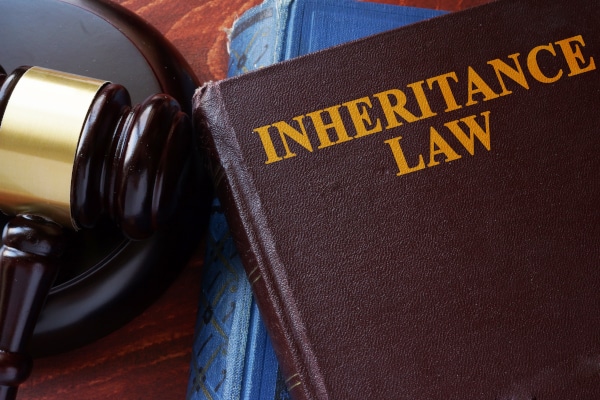There are complicated rules in Scotland when someone dies intestate. Dying intestate means dying without having made a Will. Within these rules are safeguards to ensure the surviving spouse or civil partner shares in the estate of their deceased spouse or civil partner. There are no such rules where one partner in a cohabiting relationship dies. When one partner in an unmarried cohabiting couple dies, the surviving partner has no right to share in the estate of the deceased partner. That’s why unmarried cohabiting couples must make Wills.

What is Cohabitation?
Cohabitation refers to the act of living together with a partner in a committed, intimate relationship without being married or in a civil partnership. Cohabiting couples, whether opposite-sex or same-sex, often share their lives and responsibilities much like married couples. However, it’s crucial to understand that cohabiting couples do not enjoy the same legal rights and obligations as married couples or civil partners.
This lack of legal recognition can lead to significant issues, especially in matters of inheritance and property rights. To mitigate these risks, cohabiting couples can formalise their relationship through a cohabitation agreement, which outlines the distribution of assets and responsibilities.
Prior and Legal Rights in Scotland
A surviving spouse or civil partner has a right to share in the estate of a deceased spouse or civil partner when the deceased dies intestate. These rights are Prior Rights and Legal Rights. Prior Rights are rights enjoyed only by the surviving spouse or civil partner, reflecting their legal status. Legal Rights are rights enjoyed by the surviving spouse or civil partner and any children of the deceased. Legal Rights also apply whether or not the deceased made a Will.
Prior Rights
Where the deceased died intestate, the surviving spouse or civil partner is entitled to:
- The family home (up to a value of £473,000).
- The contents of the family home (up to a value of £29,000).
- £89,000 where the deceased had no children or £50,000 where the deceased had children.
Prior Rights take precedence over Legal Rights. That means if the Prior Rights exhaust the estate, nothing will be available to meet any Legal Rights Claims.
Legal Rights
Legal Rights apply to the deceased’s moveable estate. Moveable estate is generally made up of any estate that is not land or buildings. Legal Rights apply whether the deceased had a Will or died intestate.
The following shares of estate are payable in relation to Legal Rights:
- Where the deceased had no children, the surviving spouse or civil partner is entitled to one-half of the movable estate
- Where the deceased had children, the surviving spouse is entitled to one-third of the movable estate and the children are entitled to one-third of the moveable estate. The children’s one-third share must be shared equally amongst them.
- Where the deceased was unmarried or divorced, the children are entitled to one-half of the moveable estate to be shared equally amongst them.
Where there is a Will, should the spouse of children insist on receiving their Legal Rights, they will not be entitled to anything left to them in the Will. They cannot have both.
Inheritance and Intestacy Rules
Intestacy Rules for Cohabiting Couples
If a cohabiting partner dies without leaving a Will, the surviving partner may face significant challenges. Unlike married couples or civil partners, cohabiting partners are not recognised under the intestacy rules, which means the surviving partner will not automatically inherit any of the deceased partner’s property or assets. Instead, the estate will be distributed according to the intestacy rules, prioritising blood relatives.

This can leave the surviving partner without any financial provision, regardless of the length or depth of the relationship. To avoid such a scenario, it is essential for cohabiting couples to make wills and consider entering into a cohabitation agreement. These legal documents can ensure that the distribution of assets aligns with the couple’s wishes and provides security for the surviving partner.
What happens if unmarried cohabiting couples don’t make Wills?
The key reason is that without a Will, an unmarried couple will not automatically share in the estate of the other when one of them dies. This applies no matter how long the parties cohabited or whether they have children between them.
The only remedy the survivor in an unmarried cohabiting relationship has is to apply to the courts for a share of the estate. There is also a very strict time limit for those who wish to seek this remedy. Section 29 of the Family Law (Scotland) Act 2006 only allows a claim to be lodged in court within six months of death. An unmarried partner can face significant legal challenges in this process. and there is also no guarantee of success of such a claim. Section 29 has been the subject of much criticism for the failure to provide guidance on the extent of the award. It is also important to be aware that the court has complete discretion with regard to the value of any claim.
Why unmarried cohabiting couples must make Wills
The only way unmarried cohabiting couples can be confident their estate will be distributed in accordance with their wishes is to each make Wills. It is also crucial to have cohabitation agreements in place to protect each of their rights and clarify property and asset ownership in case of separation. When they do this, their estate will be divided in accordance with their wishes, subject, of course, to Legal Rights enjoyed by their children and, potentially, a former spouse or civil partner from whom they have not yet divorced!
Many people mistakenly believe in the concept of common law marriage, but it does not exist in UK law. This means long-term cohabitation does not grant the same legal rights as marriage. Consulting a solicitor is essential for unmarried couples to understand their legal rights and responsibilities, and to formalise agreements that safeguard their interests.
Specialist Wills and estate planning solicitors, Glasgow and Livingston
The solicitors at Wallace Quinn have many years of experience in dealing with Wills, providing help with estate planning and dealing with estates. We are well-versed in advising clients on making Wills and the benefits of carrying out effective estate planning. If you are thinking about drawing up a Will, especially if you are not legally married and cohabiting, or wish to change an existing Will you have already made up, please get in touch with us.
